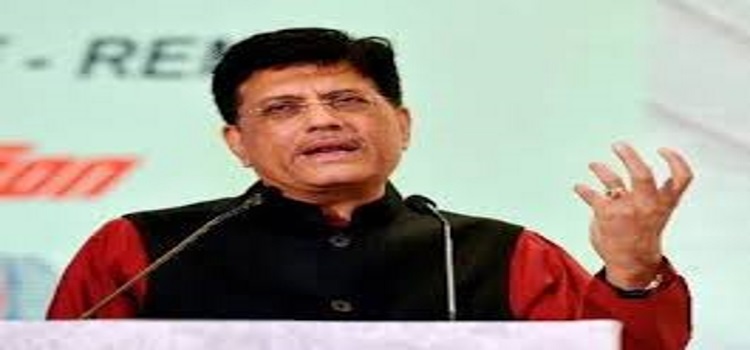
Railway minister Piyush Goyal on Wednesday said handing over the construction of three foot overbridges (FOBs) in Mumbai to the army, after a stampede on the Elphinstone Road FOB, spurred the railways to think in terms of the pace of execution of projects.
Speaking at the PHD Chambers of Commerce’s Rail Convention here, Goyal said he was not deterred when his decision to hand over the construction of the Elphinstone Road FOB and other bridges in Mumbai to the Army was criticised by many. In fact, he said the decision made the railways realise its own potential.
“It opened up our minds to think in terms of the speed of execution. After we decided around October 29-30 (2017) to hand over these three bridges to the Army, the Indian Railways got so activated that it completed 17 FOBs in the Mumbai Suburban section between October 2017 and February 2018. By June 2018, they have committed to complete another 22 FOBs. We have approved 56 more to be completed in the next 12 months and that includes tendering, procurement and execution.
“Compare that to the time before the Elphinstone Road tragedy, when it had taken 18 months, from February 2016 to September 2017, for the tender to be uploaded on the website after the (old Elphinstone Road) FOB was sanctioned. Contrast that with the speed with which railway officials are now taking up projects for implementation,” Goyal said.
The three new FOBs at the Elphinstone Road, Currey Road and Ambivali stations in Mumbai, built by the Army’s Bombay Sappers and dedicated to Mumbaikars, were inaugurated by commoners in the presence of Goyal and Maharashtra chief minister Devendra Fadnavis yesterday.
The Elphinstone Road FOB was built by the Army in a record 117 days, the Western Railways said. The Army began the construction around two months after the stampede on September 29 last year that claimed 23 lives and injured over 30 persons.
Goyal also said the railways was evolving itself to become more contemporary to meet the needs of a new India and connect with the youth, who wanted more passenger comfort and safety.
“We have agreed on the future path as regards what needs to be done to make the Indian Railways the best in the world with the help of latest technology and innovative ideas,” he added.
The minister also said a 100-per cent electrification of the railways would not only save around Rs 10,000 to Rs 13,000 crore every year, but also help curb pollution.
“Every traveller of the Indian Railways has the same value when it comes to human lives and if I believe that a modern signalling system makes the travel safer, then I see no reason why it should not be there across the railway network,” he added.
